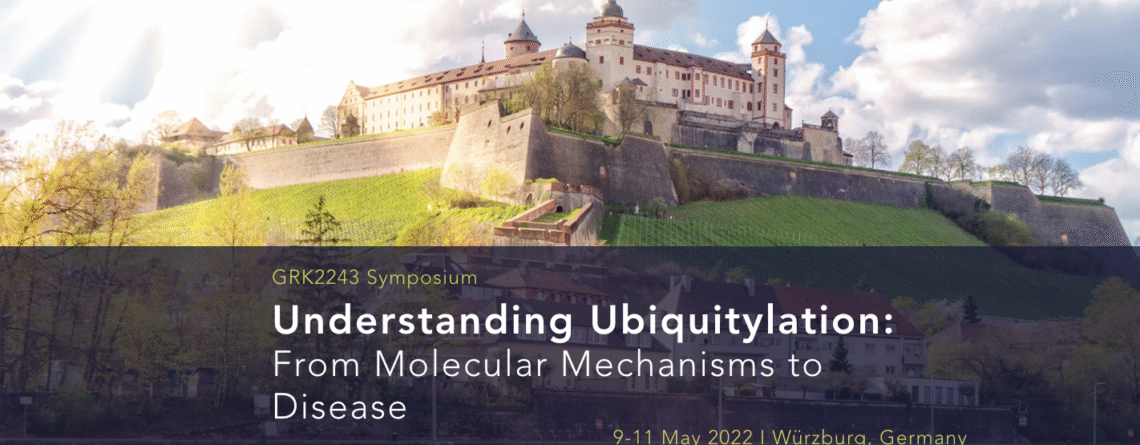home
Gebruikersnaam2025-12-03T17:09:21+01:00enabling drug discovery in the ubiquitin field since 2010
Access to well-defined and advanced ubiquitin research tools and ubiquitin-like research tools is of paramount importance for drug development, fundamental research and structural studies. Since we founded our company in 2010, our ubiquitin and ubiquitin-like research tools have been well-recognised by both Pharma & Academia. Many leading laboratories in the field worldwide use our innovative and custom reagents. We also collaborate with outstanding scientists on research projects to further our insights in this growing field. We are proud that our joint efforts regularly result in publications in high-ranking journals. You can find examples in "our publications" section below this page. For an extensive list of our publications, please visit our resource download center.
Please explore how our ubiquitin research tools expedite the three stages of early drug discovery, i.e. target - lead - lead on target, by clicking on the buttons below:
target
Identify and validate your target using our probes
hit-to-lead
compound screening using our assay reagents
lead on target
lead on target validation and lead optimization
target
Identify and validate your target using UbiQ Probes.
lead
Screen your compounds targeting DUBs and Ubl proteases using UbiQ Assay reagents.
lead on target
Our reagents enable you in lead on target validation and lead optimization.
catalogue ubiquitin reagents
In our laboratory at the Amsterdam Science Park, UbiQ develops, manufactures, and commercializes research tools such as ubiquitinated peptides, activity-based probes, and activity assay reagents. In addition to ubiquitin, we also make ubiquitin-like variants (SUMO, ISG15, NEDD8, etc.) of our reagents.
Please note our research tools are “For laboratory research use only, not for use in animals and humans".
custom ubiquitin reagents
With our UbiQ technologies we can synthesize in a site-selective manner ubiquitinated peptides and reagents that are not readily available through biological approaches. Next to our catalogue reagents, we offer a tailored chemical approach to producing specific ubiquitinated conjugates. This custom ubiquitin synthesis approach allows researchers to design unique ubiquitinated peptides and ubiquitin reagents.
news
Live cell delivery of ubiquitin reagents with peptide L17ER4 (UbiQ-381)
Farid El Oualid2026-01-06T13:07:28+01:00We would like to highlight another new reagent and protocol for intracellular delivery of ubiquitin(-like) reagents (Figure 1) based on work by Giancola et al. from the
Best EMCR talk award at the Australian Ubiquitin Summit in Lorne
Farid El Oualid2026-01-06T13:08:20+01:00As a proud sponsor of the Best Early and Mid-Career Researchers Talk award at the Australian Ubiquitin Summit, we congratulate Mengying with her well deserved award...
New activity-based probe for deubiquitinating enzymes
Farid El Oualid2026-01-06T13:08:38+01:00Here we would like to introduce Biotin-Ahx-Ub-MTC (UbiQ-378) as a new type of activity-based probe for deubiquitinating enzymes (DUBs). Reported recently by Chanda et al.,...
Poster prize award at the GRK2243 Symposium Understanding Ubiquitylation
alfred nijkerk2026-01-06T13:09:49+01:00We congratulate Dr Cara Ellison from the University of Oxford with the Poster Prize award at the GRK2243 Symposium Understanding Ubiquitylation: From Molecular Mechanisms to Disease 2025, in Würzburg (Germany).
Live cell delivery of ubiquitin reagents by bead loading
alfred nijkerk2026-01-06T13:11:52+01:00We present a new protocol for intracellular delivery of our reagents (Figure 1). In protocol P010, we outline a straightforward, mild and cost-effective method for the application of ubiquitin(-like) reagents...
where to meet us
Australian Ubiquitin Summit 2025
alfred nijkerk2025-08-30T13:12:14+02:00November 20 - 23, 2025 in Lorne, Australia Lorne Ubiquitin - The Australia Ubiquitin Summit, 2025 Contact: Farid El Oualid (CSO, attending the conference) and Alfred Nijkerk (CEO, sponsorship)
Innovation For Health 2025
alfred nijkerk2025-08-30T13:11:49+02:00April 3, 2025, Rotterdam, the Netherlands Innovation For Health 2025 Contact: Alfred Nijkerk (CEO)
Symposium Understanding Ubiquitylation
alfred nijkerk2025-08-30T13:12:58+02:00June 2 - 4, 2025, Würzburg, Germany GRK2243 Symposium Understanding Ubiquitylation: From Molecular Mechanisms to Disease, 2025 Contact: Farid El Oualid (CSO) and Alfred Nijkerk (CEO) (sponsorship)
our publications
Deubiquitinases regulate cleavage and stability of ubiquitin-fused ribosomal proteins
Farid El Oualid2026-01-06T13:06:16+01:00UbiQ is proud to have contributed to research just reported in Molecular Cell. This collaborative research between New York University School of Medicine (project leader: Tony T....
USP1/UAF1 targets polyubiquitinated PCNA with an exo-cleavage mechanism
alfred nijkerk2026-01-06T13:09:21+01:00UbiQ is proud to have contributed to this paper in Nature Communications, describing our scientific collaboration on USP1 and PCNA with the Netherlands Cancer Institute. If you are interested in...
Characterization of the Ubiquitin and ISG15 Deconjugase Activity of SARS-CoV-1 and SARS-CoV-2 Papain-Like Protease
alfred nijkerk2025-08-30T13:37:59+02:00UbiQ is proud to have contributed a chapter to the Methods in Molecular Biology book series (MIMB,volume 2591), together with scientists at the University of Texas Health...
Catalytic and regulatory mechanisms of the dual-specificity ubiquitin/FAT10 E1 enzyme Uba6
alfred nijkerk2025-12-01T22:15:24+01:00UbiQ is proud to have been part of a major collaborative research project focused on studying the dual-specificity ubiquitin/FAT10 E1 enzyme Uba6 and whose results have been published in Nature Communications. Uba6 is...
Collaborative research looks into the (essential) roles of ubiquitin proteases and ubiquitin conjugation in Leishmania parasites
alfred nijkerk2025-11-29T23:18:35+01:00Poster presentation by Daniel Harris at the 21st Royal Society of Chemistry - Medicinal Chemistry Symposium (13 - 15 September 2021, Cambridge UK). Title: A ubiquitin activating enzyme as a novel therapeutic target for leishmaniasis. Daniel Harris...





